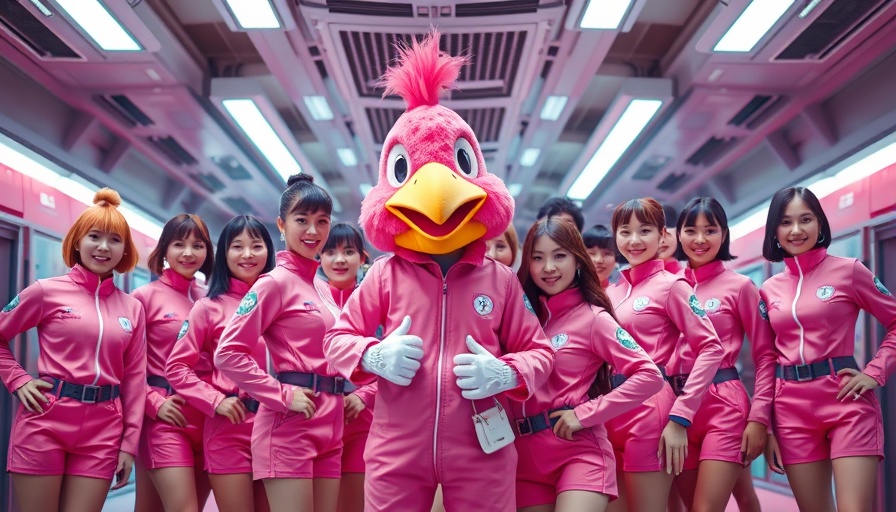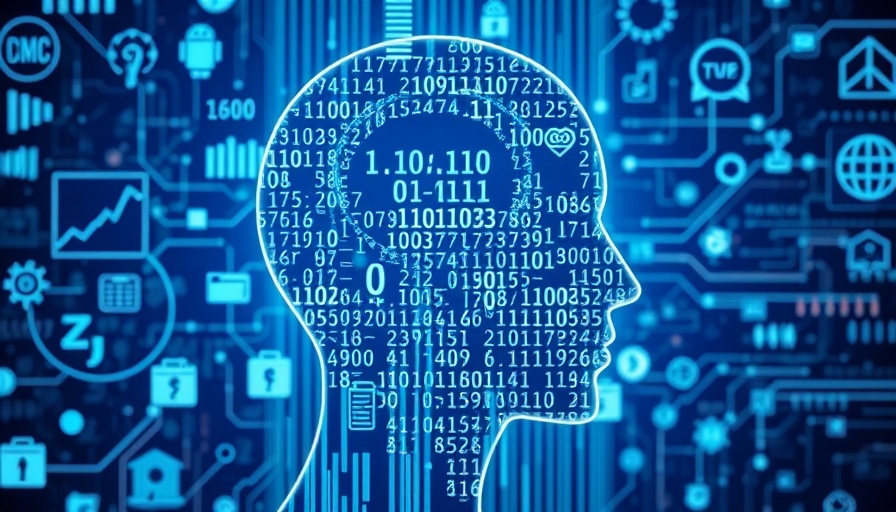
AI's Emerging Role in Corporate Strategies
This week, Duolingo made headlines by announcing its shift towards becoming an "AI-first" company, a move that reflects broader trends reshaping corporate America. As companies increasingly opt for AI solutions to enhance efficiency and reduce labor costs, the implications for the job market are profound. Brian Merchant, a journalist, highlighted Duolingo's decision as an early indicator of an AI-driven job crisis. The decision aligns with a worrying pattern: over the past few years, companies have systematically replaced human roles with artificial intelligence, especially in creative sectors.
The Human Cost of Automation
The human trajectory often takes a backseat to corporate profit margins. Duolingo's action follows previous layoffs, where the company cut around 10% of its contractor workforce, laying off translators and writers, only to substitute their functions with AI tools. This trend raises critical questions about the future of employment in creative industries. Are we trading human creativity for the cold efficiency of algorithms?
Parallel Trends: A Wider Job Crisis
Beyond the walls of Duolingo, a significant portion of the job market is feeling the strain of automation. Recent college graduates are facing an alarming unemployment rate, which Merchant attributes to the replacement of entry-level positions with AI. The message is clear: as corporations invest heavily in AI, they might be squeezing out opportunities for new hires, a phenomenon that seems to disproportionately affect the younger workforce.
AI in the Age of Downsizing
As companies consolidate control, this AI jobs crisis manifests not just in tech companies but across various sectors, highlighting a management philosophy that prioritizes cutting costs over job creation. According to Merchant, this doesn’t represent a dystopian robot takeover, but rather a shifting priority within organizations as they navigate an economic landscape where cutting labor costs has become a critical strategy.
Defining the Future Workforce
This raises crucial questions about what roles will remain in the workforce. As AI takes over tasks traditionally performed by humans, the profile of an ideal candidate is changing. The advent of AI suggests that skills like adaptability, creativity, and emotional intelligence will become more prized. Companies will increasingly look for workers who can collaborate with AI rather than compete against it.
Counterarguments: The Complete Picture
However, it is essential to consider diverse perspectives on this issue. Some argue that AI can enhance creativity rather than replace it, acting as a tool that liberates humans from mundane tasks, allowing them to focus on higher-order thinking and creative expression. This duality highlights the importance of leveraging AI correctly.
Conclusion: Navigating the AI Transformation
As a response to the changing economic landscape, businesses must embrace a forward-thinking approach: leveraging AI while ensuring that the human workforce is not left in the dust. Companies such as Duolingo must consider ethical implications alongside financial ones, exploring how to balance efficiency with empathy. Now more than ever, CEOs, marketing managers, and business professionals must anticipate the complexities of this AI transformation. The challenge lies in ensuring that the rise of AI does not equate to the decline of the human role in business.
If you work in tech or marketing, it’s essential to stay informed about these shifts. Understanding the impact of AI on your industry could help you navigate your company's future successfully. Preparing for the changes that AI will bring is not just smart—it's necessary for sustainability in your career and your organization.
 Add Row
Add Row  Add
Add 




 Add Row
Add Row  Add
Add 

Write A Comment